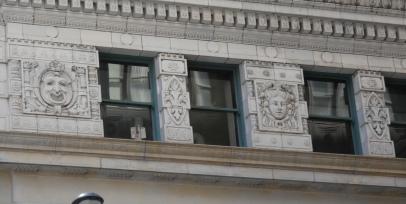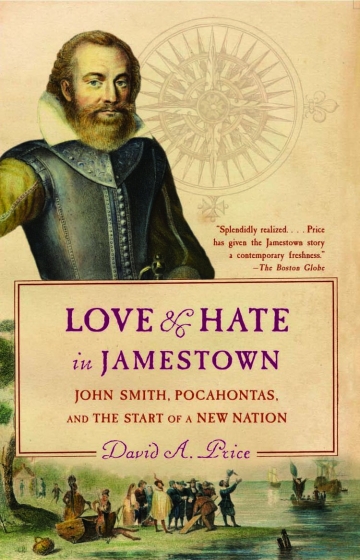
Right on the streets of every American community, robbery takes place every working day. You might not realize how much value the people of Chicago (and every other community) already create, simply by going about our daily activities. You’ll learn how we could comfortably produce much more, if only a smart tax policy were put in place.
Originally conceived as a field trip for Progress and Poverty students, this stroll — about 2 km and 90 minutes — presents some answers for those interested in finding out. Additionally, we’ll take a look at recovered loot of a long-ago theft, learn how Thomas Jefferson proposed to finance Chicago’s public schools, see some infrastructure that you probably didn’t know about, visit a shopping mall that you paid for but don’t own, and glimpse a billionaire’s downtown garden.
Detailed sourced notes will be provided. This is now a free tour, no donation required, although we do appreciate (tax-deductible) contributions from those who can afford it and find the event worthwhile.
Please sign up using the Eventbrite link.

Decades before Wealth of Nations, Adam Smith wrote what he seems to have considered a superior work, Theory of Moral Sentiments. He wrote:
How selfish soever man may be supposed, there are evidently some principles in his nature, which interest him in the fortune of others, and render their happiness necessary to him, though he derives nothing from it except the pleasure of seeing it.
Wikipedia asserts:
Smith critically examines the moral thinking of his time, and suggests that conscience arises from dynamic and interactive social relationships through which people seek “mutual sympathy of sentiments.”[74] His goal in writing the work was to explain the source of mankind’s ability to form moral judgement, given that people begin life with no moral sentiments at all. Smith proposes a theory of sympathy, in which the act of observing others and seeing the judgements they form of both others and oneself makes people aware of themselves and how others perceive their behaviour.
The Theory of Moral Sentiments has been printed in numerous editions, and is also available free on line. Smith revised the book throughout his lifetime; it’s best to avoid the first edition, and choose one published after his death in 1790.
In this session we’ll discuss parts 1-3 of the book, taking up parts 4-7 on November 20,
Event description at the registration link
Event description at the registration link
Please register for this Zoom Webinar by clicking the green registration button.
David Wilson, author of the forthcoming book Towns Along the Q, will discuss the consequences of certain disastrous and discriminatory housing policies that he has become familiar with in the course of researching the topic, development of Chicago’s western suburbs along the Chicago Burlington & Quincy Railway.

 “In 1606, approximately 105 British colonists sailed to America, seeking gold and a trade route to the Pacific. Instead, they found disease, hunger, and hostile natives. Ill prepared for such hardship, the men responded with incompetence and infighting. Only the leadership of Captain John Smith averted doom….” (from the book jacket).
“In 1606, approximately 105 British colonists sailed to America, seeking gold and a trade route to the Pacific. Instead, they found disease, hunger, and hostile natives. Ill prepared for such hardship, the men responded with incompetence and infighting. Only the leadership of Captain John Smith averted doom….” (from the book jacket).
Introducing Progress & Poverty
In less than two hours, you’ll gain new insight into the causes of low wages, worsening inequality, and economic stagnation, and examine a proposal that could create genuine opportunity for everyone willing to work.
After an overview of Henry George’s early life and work, you’ll consider why most current policies and proposals not only fail to solve problems of poverty and inequality, but often worsen them. You’ll then consider Henry George’s straightforward method for raising wages while lowering the actual cost of living, focusing on how it can apply today, even solving some 21st-century problems.
While Introducing Progress & Poverty is complete in itself, it’s also the first session of our Progress & Poverty course, which starts September 6 at our loop location, 333 S. Wabash.
Introducing Progress & Poverty
In less than two hours, you’ll gain new insight into the causes of low wages, worsening inequality, and economic stagnation, and examine a proposal that could create genuine opportunity for everyone willing to work.
ALTHOUGH THIS EVENT IS FREE, YOU MUST PRE-REGISTER BY EMAILING events@hgchicago.org or phoning 312/362-9302, so that building security will be notified to admit you.
After an overview of Henry George’s early life and work, you’ll consider why most current policies and proposals not only fail to solve problems of poverty and inequality, but often worsen them. You’ll then consider Henry George’s straightforward method for raising wages while lowering the actual cost of living, focusing on how it can apply today, even solving some 21st-century problems.
While Introducing Progress & Poverty is complete in itself, it’s also the first session of our Progress & Poverty course, which continues on Thursdays thru November 17.

